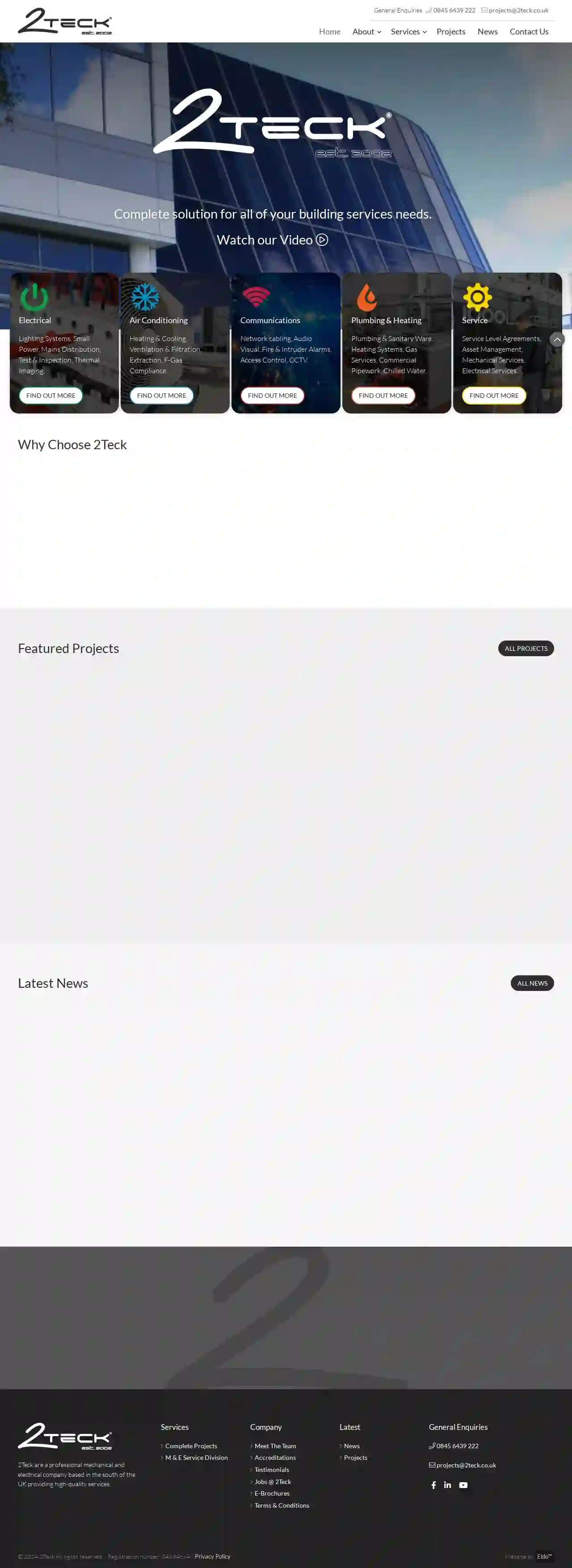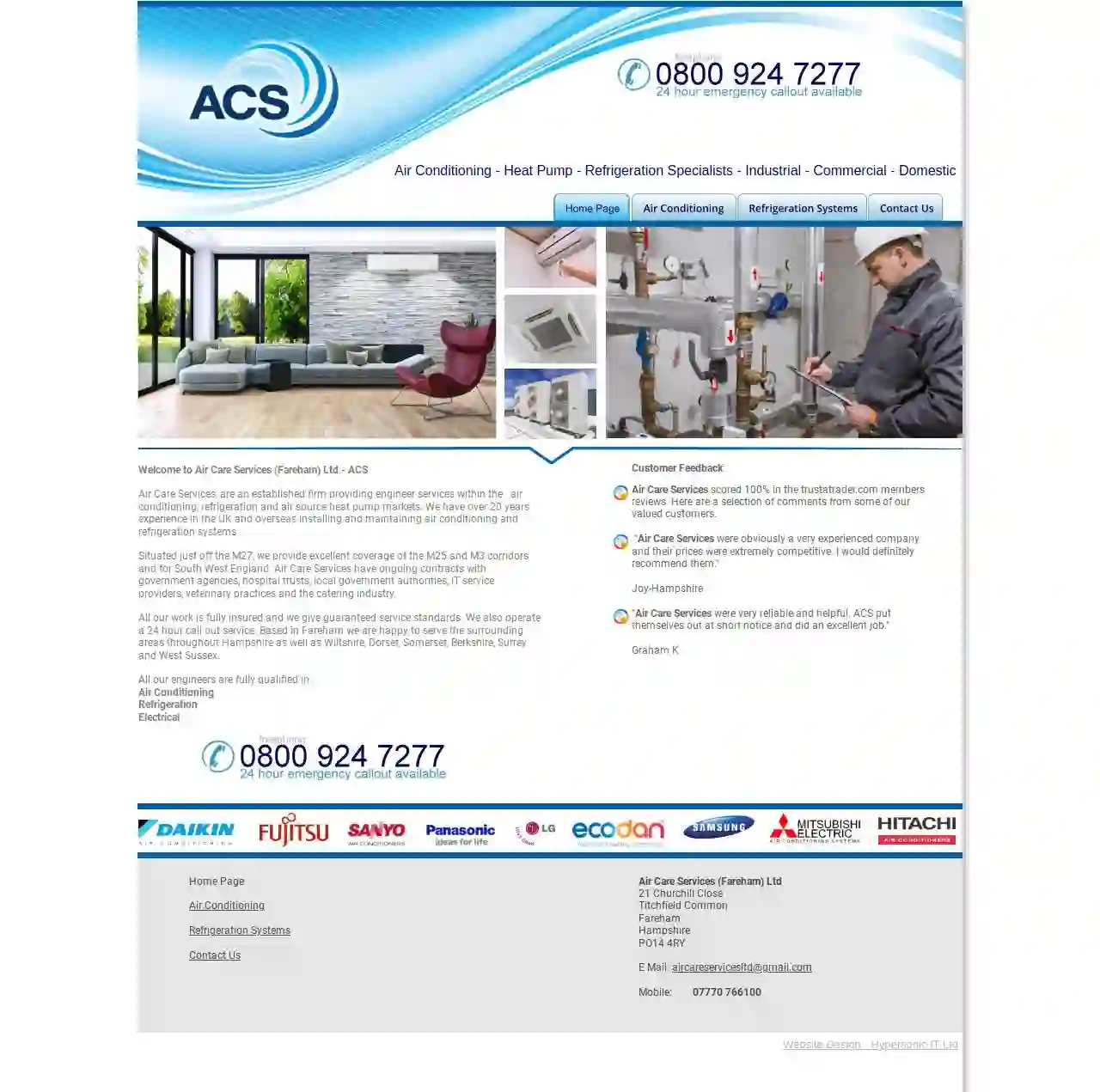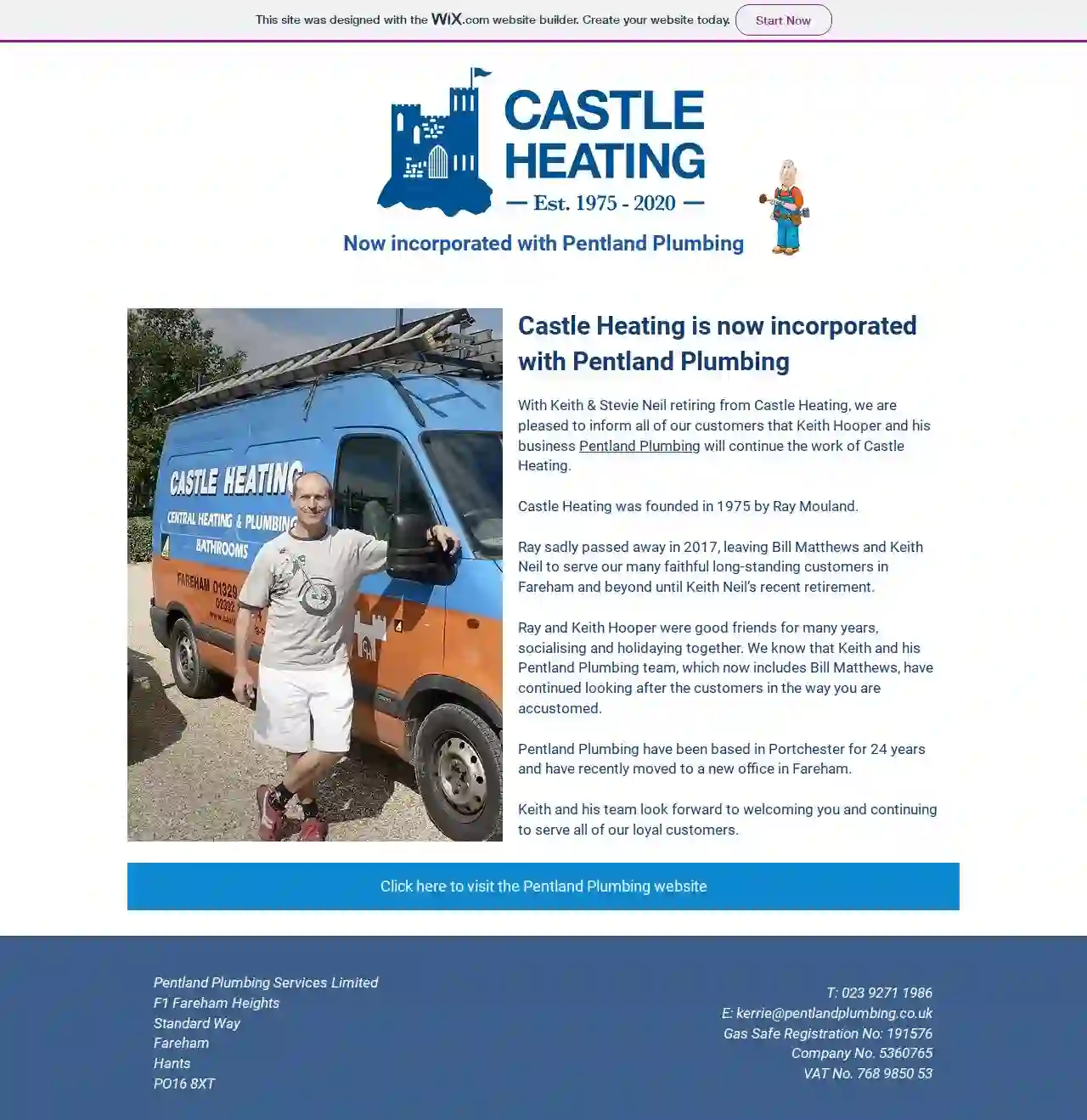Commercial HVAC Haven Street
Top 10 Industrial HVAC in Haven Street
Receive up to 3 Industrial HVAC quotes for your project today! Compare profiles, reviews, accreditations, portfolio, etc... and choose the best deal.

Aura Heating
4.4171 reviewsNew Road, Aura House, Havant, PO9 1DE, GBAura Heating is the South's favourite heating experts. We have been helping customers in Hampshire, Surrey, Dorset, Sussex, Berkshire, South London and surrounding areas since 2005. We are your friendly, reliable, local plumbing + heating experts. Our team are available 24/7 to take your calls. We offer a range of services including new boilers, boiler grants, boiler repairs and servicing, oil boiler installs and maintenance, new boiler guarantee, heating care plans, and more.
- Services
- Why Us?
- Accreditations
- Our Team
- Gallery
Get Quote
PHC Parts
53 reviewsUnit 3, Parkway Trading Estate, Bristol, BS2 9PG, GBPowred Heating Components is a leading supplier of heating spares and components. We offer a wide range of products from top brands, including Baxi, Glow-worm, Ideal, Vaillant, and Worcester Bosch. Our extensive inventory includes boiler spares, radiator valves, pumps, and pressurisation units, as well as underfloor heating and solid fuel stove parts. We also provide a variety of plumbing and electrical products, including copper tube and fittings, brassware, and electrical heating appliances. With a strong focus on customer service, we aim to provide fast and reliable delivery, competitive pricing, and expert advice to help you find the right products for your needs.
- Services
- Why Us?
- Accreditations
- Gallery
Get Quote
2 Teck Ltd
54 reviewsWaterlooville, GB- Services
- Why Us?
- Accreditations
- Testimonials
- Gallery
Get Quote
Air Care Services (Fareham) Ltd
Titchfield Common, Fareham, 21 Churchill Close, PO14 4RY, GBWelcome to Air Care Services (Fareham) Ltd - ACS. Air Care Services, are an established firm providing engineer services within the air conditioning, refrigeration and air source heat pump markets. We have over 20 years experience in the UK and overseas installing and maintaining air conditioning and refrigeration systems. Situated just off the M27, we provide excellent coverage of the M25 and M3 corridors and for South West England. Air Care Services have ongoing contracts with government agencies, hospital trusts, local government authorities, IT service providers, veterinary practices and the catering industry. All our work is fully insured and we give guaranteed service standards. We also operate a 24 hour call out service. Based in Fareham we are happy to serve the surrounding areas throughout Hampshire as well as Wiltshire, Dorset, Somerset, Berkshire, Surrey and West Sussex. All our engineers are fully qualified in Air Conditioning, Refrigeration, Electrical, Air Conditioning - Heat Pump - Refrigeration Specialists - Industrial - Commercial - Domestic.
- Services
- Why Us?
- Testimonials
- Gallery
Get Quote
Castle Heating
51 reviewsStandard Way, F1 Fareham Heights, Fareham, PO16 8XT, GBCastle Heating was founded in 1975 by Ray Mouland. Ray sadly passed away in 2017, leaving Bill Matthews and Keith Neil to serve our many faithful long-standing customers in Fareham and beyond until Keith Neil's recent retirement. Ray and Keith Hooper were good friends for many years, socialising and holidaying together. We know that Keith and his Pentland Plumbing team, which now includes Bill Matthews, have continued looking after the customers in the way you are accustomed. Pentland Plumbing have been based in Portchester for 24 years and have recently moved to a new office in Fareham. Keith and his team look forward to welcoming you and continuing to serve all of our loyal customers.
- Services
- Why Us?
- Accreditations
- Our Team
- Gallery
Get Quote
Climate Gas Ltd
4.9132 reviews2 Testwood Lane, Totton, SO40 3AQ, GBLooking for a new boiler? Get in touch today to discuss your requirements. The Climate Gas Showroom in Totton has a great selection of recommended gas appliances by leading brands at very competitive prices. We are open Monday til Friday, 9am – 4.30pm. If you require cost effective, reliable heating and plumbing engineers then look no further. Operating throughout Southampton and the surrounding areas we cater to all domestic and business customer's central heating systems, gas services and plumbing requirements. Established in 1989, we have the knowledge and expertise needed to ensure that you receive nothing but the best service. Our reputation has been developed through hard work and reliability which is why we are the area's number one choice for plumbing & gas related work. We can offer finance options to help you get the benefit of a more efficient heating system now and spread the cost over a period of time to suit your budget. We are a Worcester Accredited Installer. Worcester Accredited installers are recognised domestic and commercial heating companies that meet or exceed the standards of sustained quality of installation, service, and customer care. These installers are accessible, through the official Worcester Bosch website. Worcester Bosch ensure our clients receive a high standard of workmanship and professionalism, our accredited companies are monitored by several recognised trade and industry bodies. We are Gas Safe registered. Climate Gas takes gas safety seriously. All of our engineers are on the Gas Safe Register and will have official identity card when you ask to see it. Gas Safe Register is the official gas safety organisation in Great Britain. It replaced CORGI on 1st April 2009. Gas Safe Register is responsible for the registration and regulation of gas engineers. Membership is mandatory for any company or engineer working with gas appliances. If you would like to find out more about Gas Safe Register you can call 0800 408 5500 or visit the Gas Safe Register website.
- Services
- Why Us?
- Accreditations
- Gallery
Get Quote
Hampshire Heating Services Ltd
5169 reviewsGosport, 70 St Nicholas Avenue, PO13 9RW, GBWelcome to Hampshire Heating Services, a plumbing and heating specialist in Hampshire. Founded by Dylan Demetrious-Wilde, the company provides all aspects of Gas & Heating works across Hampshire in Fareham, Gosport, Stubbington, and Southampton. With a strong work ethic based on military standards, our engineers liaise with customers throughout the process to ensure a complete understanding of the work being done. We pride ourselves on our reputation for being dependable and cost-effective, making us the go-to choice for heating contractors in the area.
- Services
- Why Us?
- Accreditations
- Our Team
- Testimonials
- Gallery
Get Quote
Omni Heating
531 reviews8 Spur Road, Cosham, Portsmouth, Hampshire, United Kingdom, PO6 3EB, GBAs your local Portsmouth heating engineer, we can provide quality heating services, from boiler installations, to annual servicing & repairs. With many years working in the heating and plumbing industry, our Gas Safe registered heating engineers can carry out boiler installations, boiler repairs and boiler servicing throughout Portsmouth and the surrounding areas. We work with leading boiler manufacturers such as Vaillant, Worcester Bosch, Ideal and Alpha, so you can be sure you're getting a high quality product. If your boiler is beyond repair, our heating engineers will help you find a brand new boiler that suits your home. We also offer powerflushing services, can install smart controls and are even available for a range of plumbing jobs. Customer service is hugely important to us so we’re always happy to help both existing and new customers. We also offer discounts to NHS staff and military personnel, please feel free to ask us for more information! Here at Omni Heating, we have over 20 years experience covering domestic and commercial heating and plumbing services. We thrive and pride ourselves on quality workmanship and enjoy problem-solving, so feel free to give us a little challenge, no job is too small!
- Services
- Why Us?
- Accreditations
- Our Team
- Testimonials
- Gallery
Get Quote
Freeair Services
57 reviewsHamilton Way, Hedge End, Unit B2E Hamilton Business Park, Southampton, SO30 2JR, GBFreeair Services Limited has been designing, supplying, installing and commissioning heating, air conditioning, refrigeration and ventilation systems for over 10 years. Combining expertise, experience and independence, we provide our customers with tried and tested products, quality workmanship and strong project management, all backed up with full service and support. We have a sizeable and skilful team, enabling us to take on multiple projects at any given time and ensure a breadth of relevant experience on each job. We currently run 12 core teams installing and maintaining our clients’ projects with a further five teams of subcontractors working under our name, controlled by our contract engineers. We have worked across Europe, including France, Switzerland and Belgium, and are always pleased to spread our net wider afield. Amongst the sectors in which we operate are commercial and retail, pubs and restaurants, schools, hotels and public buildings.
- Services
- Why Us?
- Our Team
- Testimonials
- Gallery
Get Quote
House Martin Heating
4.621 reviews20 Old Garden Close, Locks Heath, SO31 6RN, GBHouse Martin Gas Heating & Plumbing is made up of an experienced team of Gas Safe Registered Engineers directed by Steve Martin who is based in Locks Heath, Southampton. We have experience and knowledge of many boilers and all types of domestic gas appliances, this includes all types of heating systems old and new from pressurised hot water systems, combination boilers to solar panels. At House Martin Gas Heating & Plumbing, Locks Heath, Southampton we keep your costs to a minimum, but at the same time as saving you money, we offer the most outstanding service and parts every time, no matter how big or small the job is, and no job is too big or small for us either. House Martin Gas Heating & Plumbing, Locks Heath, Southampton have a strict policy of only fitting premium quality parts. When we quote you we offer you the best boilers on the market at the time with regards to cost and efficiency. The only way to have your gas system worked on legally in England is by a GAS SAFE REGISTER registered installer. House Martin Gas Heating & Plumbing, Locks Heath, Southampton offer GAS SAFE REGISTERED gas engineers - and will always provide identification. We offer gas engineering and plumbing for all kinds of work including: Gas central heating, install, service and repair Gas pipe reworks Fires, including surrounds (and chimney lining if needed subject to builder availability), install service and repair Cookers, install, service and repair Hobs Landlord/general Gas Safety checks All general plumbing problems are also looked at: Radiator swaps, additional radiators to systems, Leaking taps Tap installs, outdoor taps, refits Burst pipes Sink / shower installs Saniflow installations Bathrooms £300 heating rebate scheme This scheme has helped thousands of people receive insulation and heating improvements to make their homes warmer, healthier and more energy-efficient. On Monday 5th December 2005, the Chancellor made a pre-budget announcement regarding Government's intention to offer a £300 grant to pensioners who would not otherwise be eligible for Warm Front. If you are over 60, own or privately rent your home and do not qualify for a Warm Front Grant because you do not receive a relevant benefit, you may be eligible for a £300 rebate. This rebate is available to help towards repairing or replacing an inoperable system or installing a new central heating system where there is none existing at the prope
- Services
- Why Us?
- Our Team
- Gallery
Get Quote
Over 12,692+ HVAC Contractors on our directory
Our HVAC experts operate in Haven Street and surrounding areas!
HVACCompaniesHub has curated and vetted Top HVAC Contractors arround Haven Street. Find a reliable contractor today.